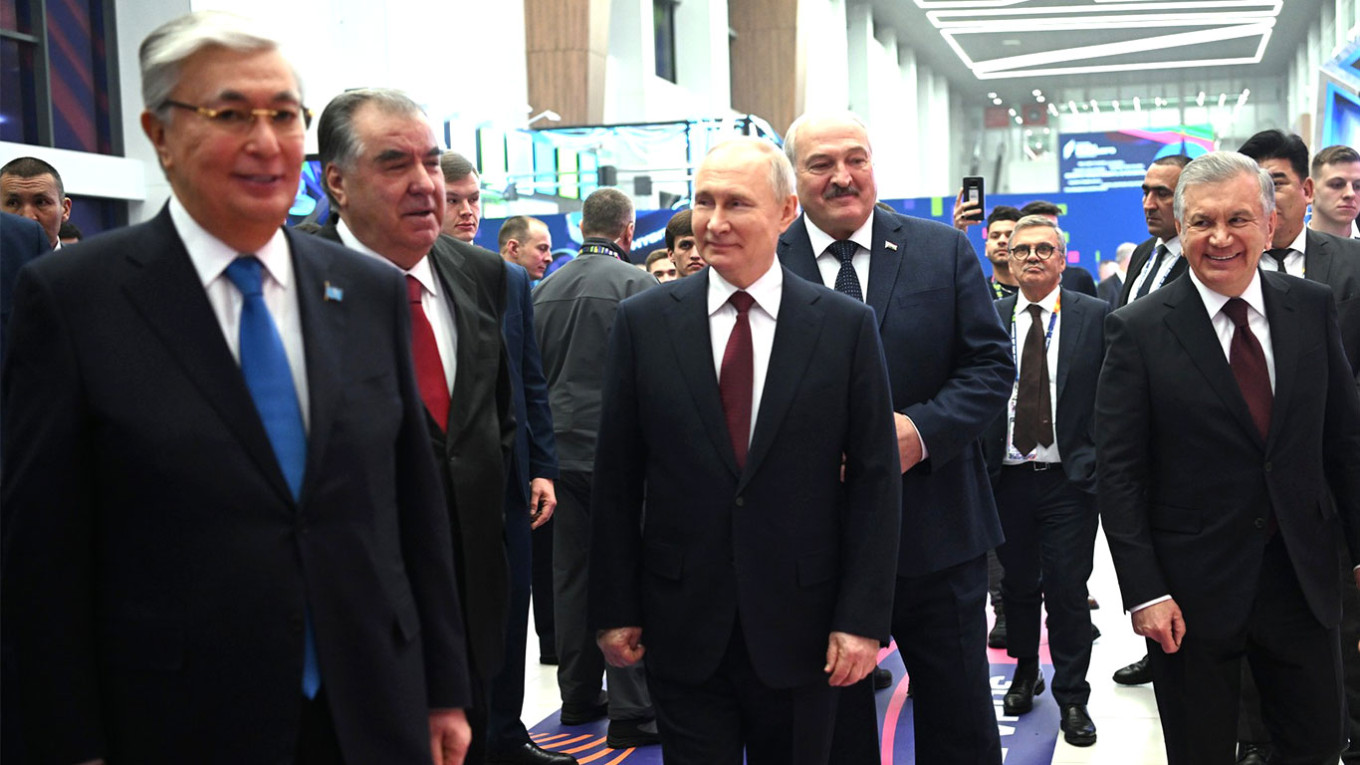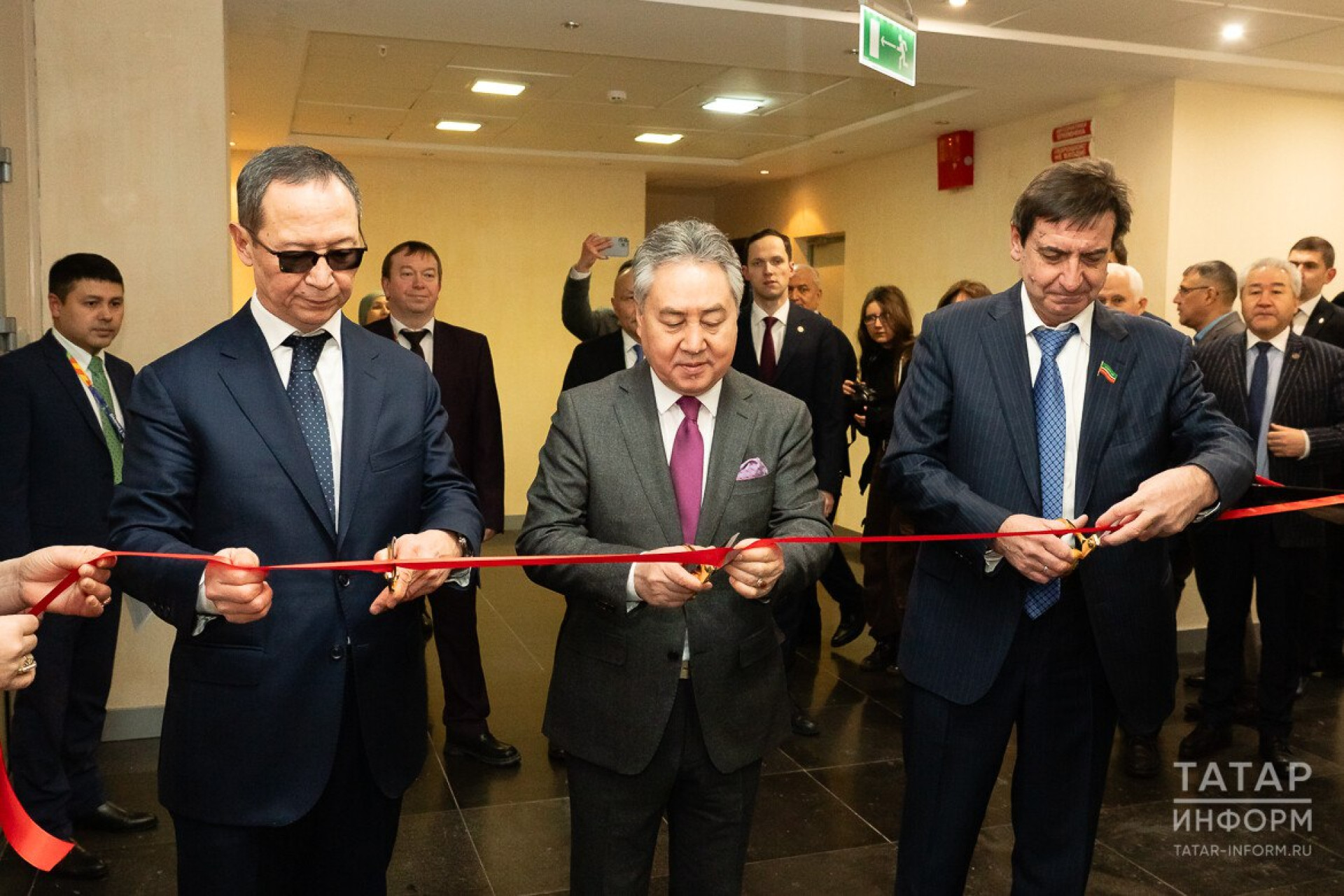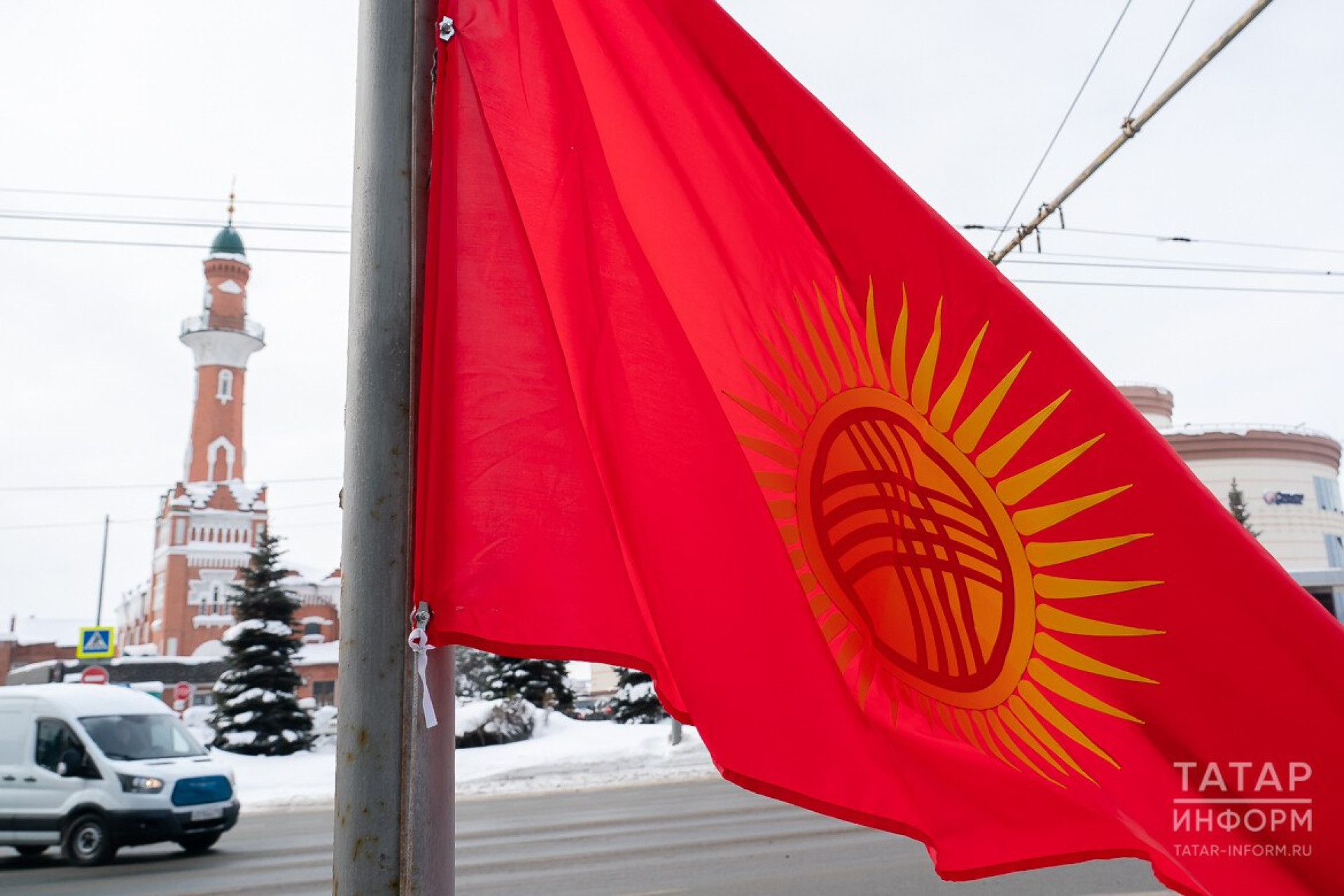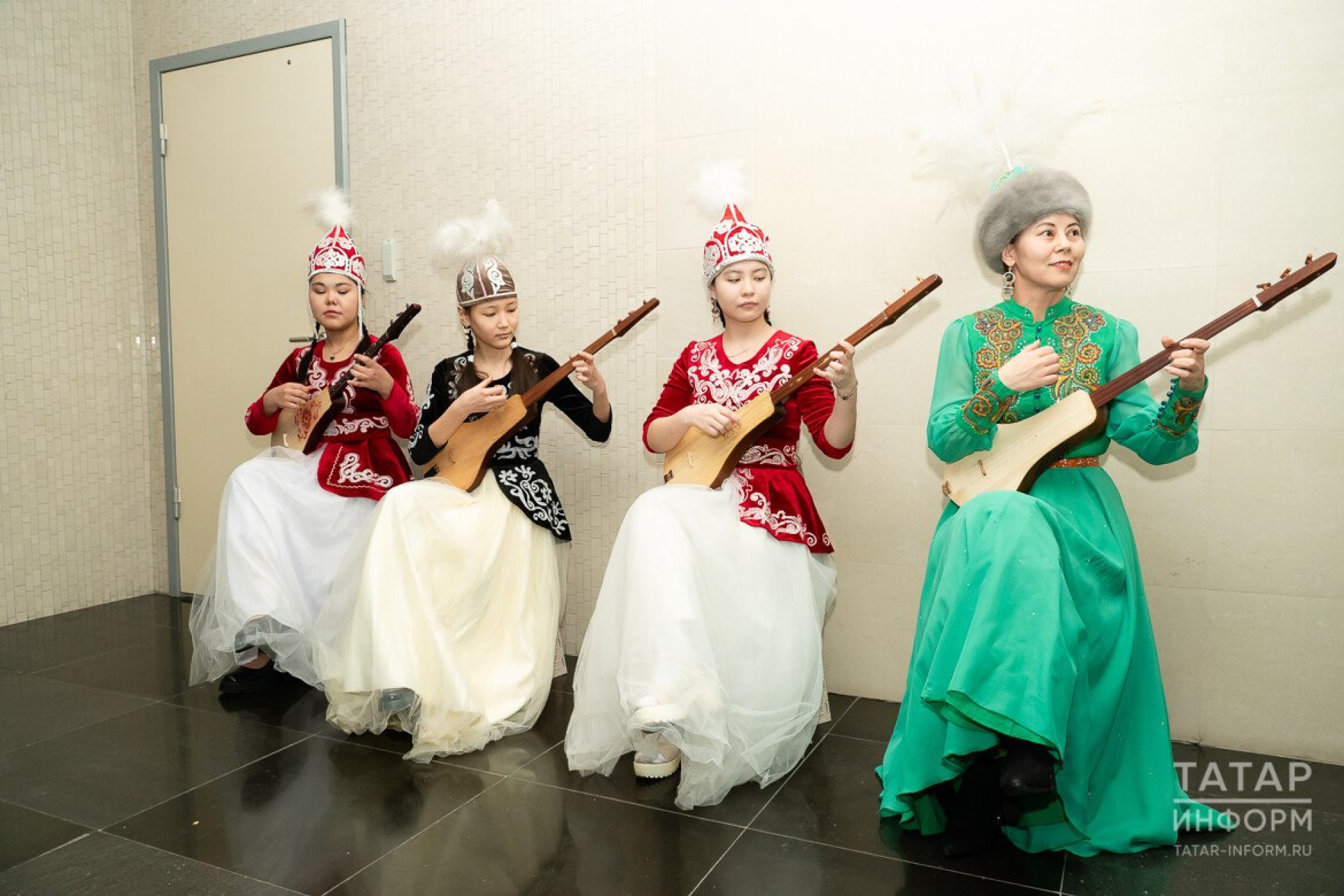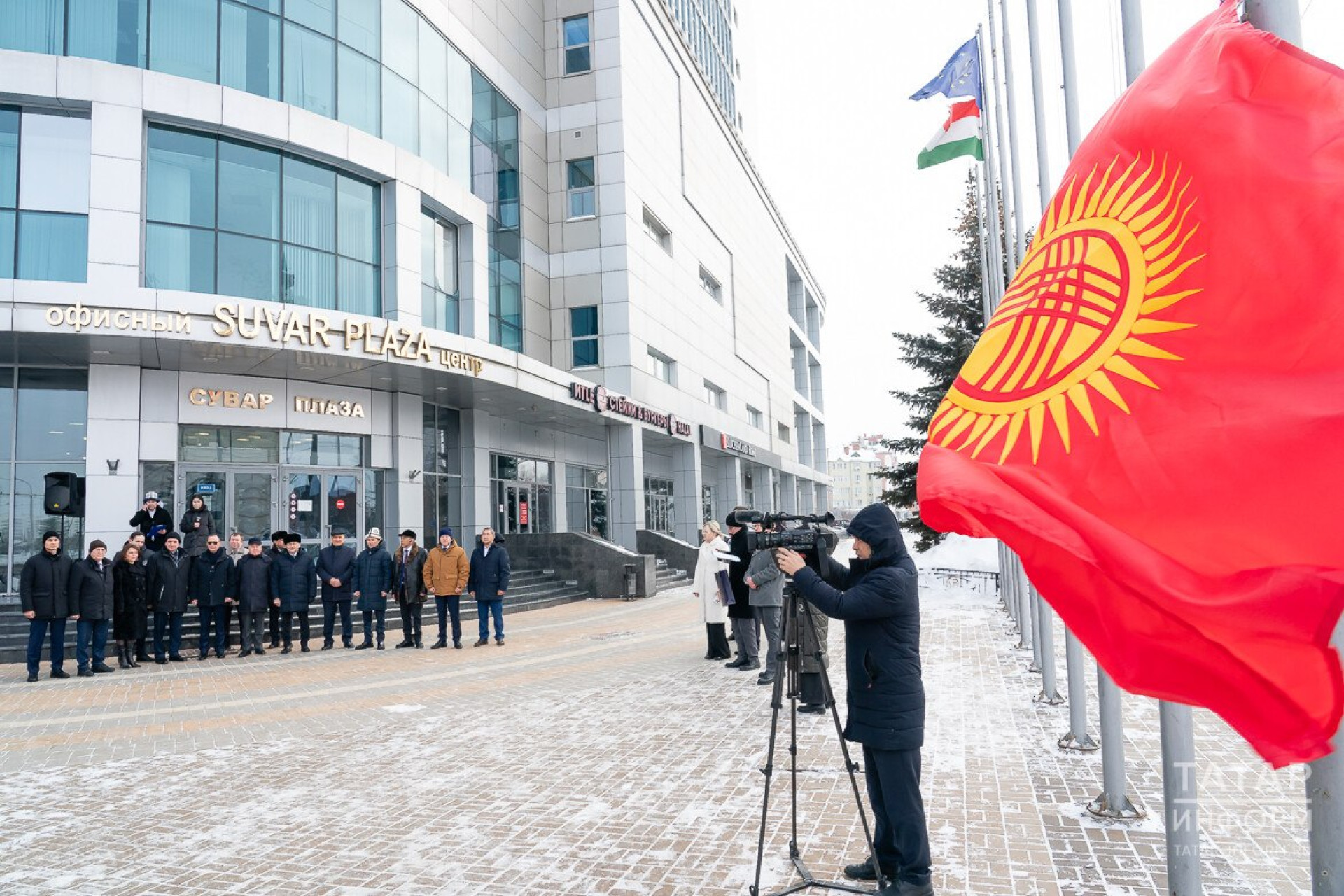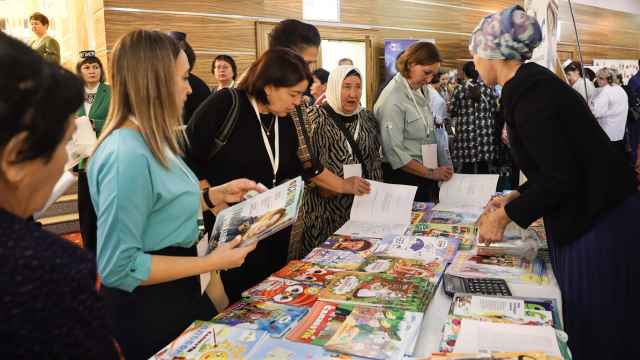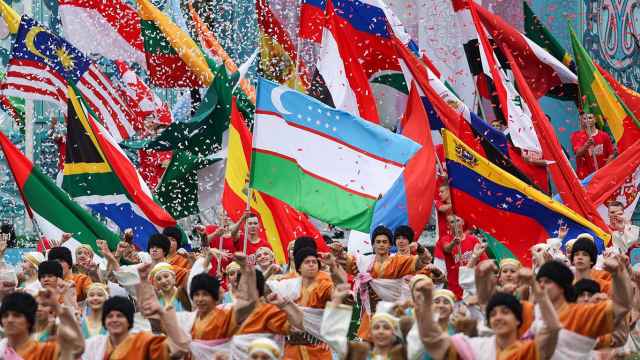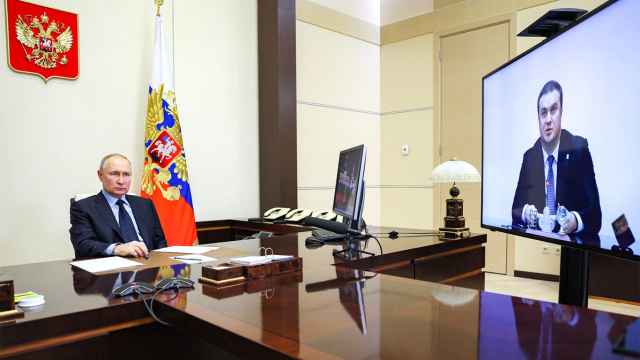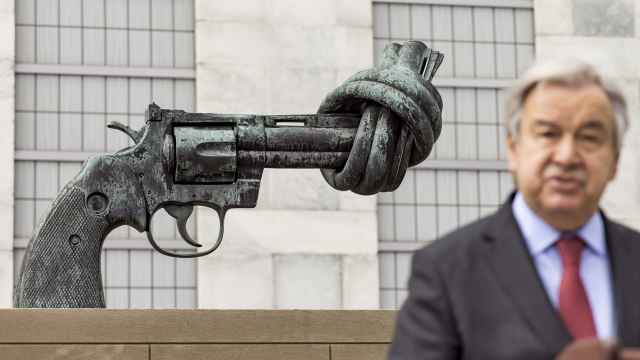Russia’s first-ever Games of the Future, an international competition in sports disciplines that combine physical and digital elements, came to a close in the capital of the republic of Tatarstan on Sunday.
The event, which had a budget of over 6 billion rubles ($65 million), drew 2,000 participants from 107 countries who competed across 21 disciplines, including “phygital” football, a battle tank simulator, drone racing, robot battles and speedrunning.
Yet despite the fanfare — including the presence of President Vladimir Putin and leaders of several allied nations — experts say there is little evidence of Russia breaking out of its wartime geopolitical isolation.
“Given Russia’s isolation, Games of the Future are one of the most notable international events that could have possibly taken place [in Russia today],” said Temur Umarov, an analyst at the Carnegie Endowment for International Peace.
“The sheer number of countries that participated and the fact that it happened in Kazan — which regularly hosted important sporting events before the war — [shows] that this is an attempt by Putin’s inner circle to show him…that everything in Russia is like before and even better, more modern.”
The games’ Feb. 21 opening ceremony in Kazan warranted the in-person attendance of Putin, who was joined by presidents of Belarus, Kazakhstan, Kyrgyzstan, Tajikistan and Uzbekistan, as well as the Republika Srpska, the Bosnian Serb entity within Bosnia and Herzegovina that counts Moscow as an ally.
“I don’t think Central Asian governments were interested in these games as such,” Umarov told The Moscow Times. “It was much more important for them to have additional access to Vladimir Putin, the opportunity to say something to him and hear something important that could influence the relations in the future.”
While Putin held private talks with all of the Central Asian leaders who made their way to Kazan, these meetings yielded no evident diplomatic breakthroughs.
The grand opening of the consulate of Kyrgyzstan in Kazan — the country’s fifth diplomatic mission in Russia and first in the Volga region — was the most notable diplomatic event to take place on the sidelines of the games.
Though neither Putin nor Kyrgyz President Sadyr Japarov attended the consulate’s opening, analysts interviewed by The Moscow Times agreed that the launch of a new diplomatic mission is an important symbol attesting to strong bilateral ties between Turkic-majority Tatarstan and Central Asian states.
Tatarstan, which was once hailed as the last beacon of regional autonomy from the Kremlin, was stripped of the last vestiges of its sovereignty following the invasion of Ukraine. Yet unlike most other ethnic republics in Russia, it has retained control of some aspects of its foreign policy.
“Moscow is using Tatarstan to circumvent sanctions, to build [better] relations with Turkey, Central Asia, Middle East…I think Tatarstan was [unofficially] delegated this role,” said Tatar political expert Ruslan Aysin, noting that Russia has historically “used Tatars as its soft power” to foster strong ties with Muslim and Turkic-majority nations.
“The real question is…whether this could backfire against Russia? It is possible because such close ties could be a big plus for Tatarstan [as an entity striving for greater autonomy] in turbulent times,” added Aysin.
For now, Tatarstan remains Moscow’s loyal partner, and its leader Rustam Minnikhanov acted as a loyal friend to Putin, appearing at the Russian president’s side throughout his two-day visit to Kazan.
During his trip, Putin made a highly publicized visit to the Kazan Aviation Plant to inspect four Tupolev Tu-160M supersonic bombers. The Tu-160M, a modernized version of a Cold War-era military aircraft, made its first test flight a month before Russian forces invaded Ukraine in 2022.
In addition to conducting a 30-minute test flight, Putin ordered that one of the bombers be named after Tatarstan’s first president Mintimer Shaimiev.
“We are in Tatarstan. Let's name the plane ‘Mintimer Shaimiev.’ This is a man who has done a lot…not only for Tatarstan, but for the [entire] country,” state-linked news agency Tatar Inform quoted Putin as saying.
“I think this was done deliberately to smear not only Shaimiev, but also Tatarstan,” expert Aysin told The Moscow Times.
“Everything that Putin does has [a deeper] meaning behind it,” Aysin explained. “This aircraft…will be conducting airstrikes in Ukraine and maybe in some other countries in the name of Tatar people and Tatarstan’s first president, the founding father of Tatar sovereignty.”
Putin was also spotted driving a Tatarstan-made KAMAZ truck during an inspection of a recently opened segment of the M12 highway, part of a grand transport route intended to connect central Russia with western China.
Though Putin hailed the Games of the Future as a space “free of politics” in his opening speech — and government-loyal commentators rushed to compare it to the 2014 Sochi Olympics — the presence of only a handful of loyal allies, sanctioning of some athletes over their participation and muted coverage of the event outside Russia all underscored Moscow’s international isolation.
Russia’s close ally China, which was predicted to be the next Games of the Future host country, is rumored to have made a last-minute exit from the arrangement.
No plans for next year’s competition were confirmed at the closing ceremony despite it being co-hosted by a Chinese and a Russian presenter and Chinese participants being seated next to high-ranking Russian officials in the VIP lounge.
Amid China’s floundering, Russia might find consolation in its Central Asian allies, as the leaders of both Kazakhstan and Uzbekistan voiced wishes to host the Russia-led competition next year.
And it is unlikely that Central Asian countries will face damaged relations with the West if they do so, said Umarov of the Carnegie Endowment.
“The West is scared that imposing even a minimal pressure on the five countries of the region could result in them turning away toward Russia and China completely,” Umarov said. “They don’t want that to happen, so they are turning a blind eye to many things.”
A Message from The Moscow Times:
Dear readers,
We are facing unprecedented challenges. Russia's Prosecutor General's Office has designated The Moscow Times as an "undesirable" organization, criminalizing our work and putting our staff at risk of prosecution. This follows our earlier unjust labeling as a "foreign agent."
These actions are direct attempts to silence independent journalism in Russia. The authorities claim our work "discredits the decisions of the Russian leadership." We see things differently: we strive to provide accurate, unbiased reporting on Russia.
We, the journalists of The Moscow Times, refuse to be silenced. But to continue our work, we need your help.
Your support, no matter how small, makes a world of difference. If you can, please support us monthly starting from just $2. It's quick to set up, and every contribution makes a significant impact.
By supporting The Moscow Times, you're defending open, independent journalism in the face of repression. Thank you for standing with us.
Remind me later.



